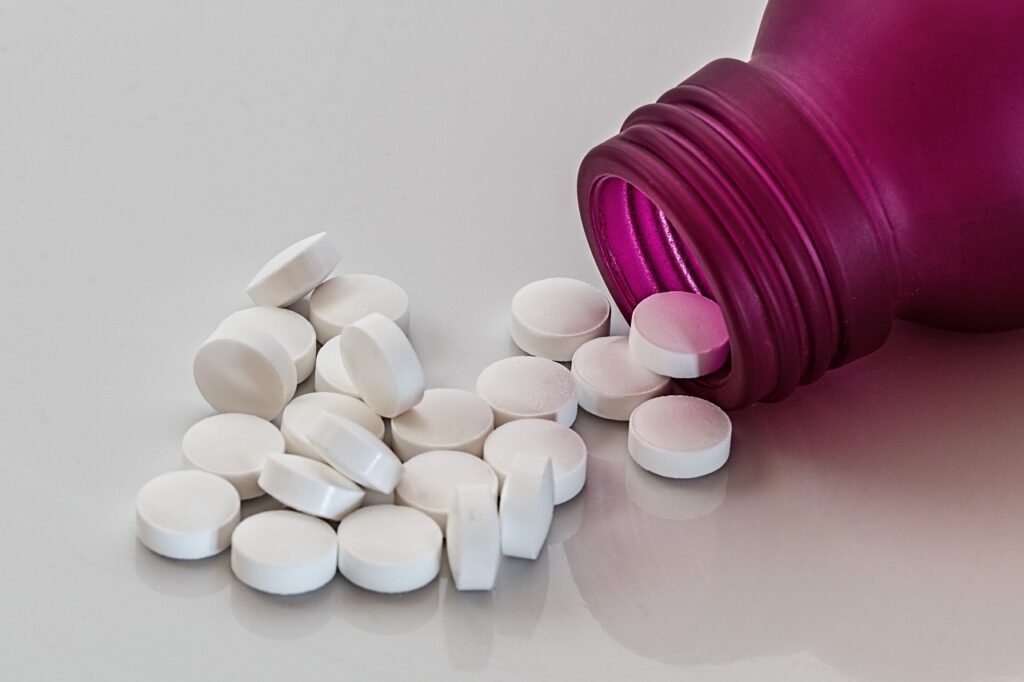20+ Years Experience
Specialist Inpatient Rehabilitiation

Enquire Today For A Free No Obligation Quote
When it comes to alcohol or drug addiction treatment, one size does not fit all.
With various treatment options available, it can be challenging to determine which one is best suited for your unique situation.
In this blog post, we will explore the key differences between inpatient addiction rehabilitation vs outpatient addiction rehab, shedding light on the advantages and disadvantages of each approach.
By understanding the core components of these treatment options, you can make an informed decision on the path to recovery that is right for you or your loved one.
Inpatient and outpatient treatment offer unique benefits and drawbacks, catering to different needs and situations.
Inpatient care involves residing at a facility with 24/7 care and support, often including a medical detox.
On the other hand, outpatient care enables individuals to continue their daily routines while attending scheduled treatment sessions.
Both inpatient and outpatient treatment options play a crucial role in addiction treatment.
While inpatient rehab provides a higher level of care and support, it tends to be costlier and less flexible compared to outpatient care.
Outpatient treatment, although more flexible, may expose individuals to temptations that could lead to a relapse.
Regardless of the option chosen, family therapy plays a crucial role in both inpatient and outpatient care, helping to identify and address underlying issues that contribute to addiction.
Inpatient addiction treatment centres provide a safe and controlled environment for individuals battling addiction.
Patients reside at the facility and receive round-the-clock care and support, including:
Residential treatment programs typically last anywhere from 30 days to 6 months, with family involvement playing a vital role in the recovery process of an inpatient treatment program.
Upon completion of inpatient treatment, clients may transition to outpatient care. This allows for:
Outpatient programs for substance use disorders (whether this is alcohol rehab or for drug abuse) allow individuals to maintain their daily activities while attending pre-arranged treatment sessions in an outpatient treatment program.
The components of outpatient treatment include therapy sessions, group therapy, and family therapy, all tailored to address addiction and mental health issues.
Outpatient treatment programs offer a range of levels of care, including partial hospitalisation and intensive outpatient treatment, catering to individual needs.
One of the significant advantages of outpatient treatment is the support from family and friends and the comfort of one’s own home.
The flexibility of the outpatient treatment program enables patients to continue working or attending school while receiving treatment, making it a more convenient option for many.
To start an outpatient program, please speak to a member of our team today.
Inpatient rehab, a form of inpatient care, offers a higher level of care compared to outpatient treatment, with key components including medical detox, a structured environment, and comprehensive support at an inpatient rehab facility.
Inpatient treatment programs provide the necessary tools for lasting recovery.
This approach provides a solid foundation for recovery, helping individuals overcome drug and alcohol addiction and maintain long-term sobriety.
Medical detox is a crucial aspect of inpatient care, ensuring the safe management of withdrawal symptoms during the initial stages of recovery.
Inpatient detox provides a secure and medically supervised environment, reducing the risks associated with withdrawal and relapse prevention.
For individuals struggling with alcohol addiction, medical detox is particularly important due to the potentially fatal complications that can arise during withdrawal.
By offering constant medical care and monitoring, inpatient treatment centers can mitigate these risks and ensure a safe and supported detoxification process.
A structured environment in inpatient rehab provides:
This environment fosters a sense of stability and discipline, allowing individuals to focus solely on their recovery.
The benefits of a structured environment extend beyond the confines of the treatment facility, as individuals can carry the discipline and routines learned in residential rehab into their normal daily lives.
This can help maintain recovery and reduce the risk of relapse in the long term.
Inpatient rehab offers comprehensive support to individuals on their path to lifelong recovery, encompassing therapy, educational programs, and 12-step activities.
Psychologists, counsellors, and psychiatrists provide individual and group therapy, addressing the unique needs of each patient and facilitating their recovery journey.
Clinicians play a vital role in providing necessary medication and medical expertise to reduce drug cravings and drug and alcohol withdrawal symptoms.
This comprehensive support ensures that individuals in inpatient rehab receive the care they need to overcome drug addiction and maintain obriety.
If you are thinking of entering treatment for your substance use disorder today, please speak to our professionals.
Outpatient rehab, while offering a lower level of care than inpatient treatment, still provides essential support and resources for individuals in recovery. Key components of outpatient care include various levels of care, flexible scheduling, and the ability to maintain daily responsibilities while receiving treatment.
Outpatient treatment programs offer different levels of care, including partial hospitalisation and intensive outpatient treatment, to cater to individual needs and circumstances.
Partial hospitalisation programs are designed to stabilise behaviours in early recovery and typically last 5-6 hours per day, while intensive outpatient programs usually last 3 hours per day.
By providing a range of care options, outpatient treatment ensures that individuals can receive the appropriate level of support and treatment tailored to their specific needs and recovery goals.
Flexible scheduling is a key advantage of outpatient treatment , allowing individuals to attend treatment sessions around their daily commitments.
This flexibility ensures minimal disruption to one’s personal and professional life, enabling individuals to receive the necessary care without compromising their daily routines.
The ability to maintain a sense of normalcy while receiving treatment can be highly beneficial for many individuals, providing a sense of stability and continuity during the recovery process.
Outpatient treatment enables individuals to maintain their daily responsibilities, such as work or school while receiving treatment.
This approach allows for a more seamless integration of recovery efforts into one’s daily life, affording the opportunity to apply newly learned skills and coping strategies in real time.
The advantages of adhering to daily obligations in outpatient treatment include:
Inpatient rehab typically costs more than outpatient due to the higher level of care provided, with expenses ranging from £2,000 for basic services to £40,000 a month for comprehensive services if insurance does not cover treatment.
However, insurance and financial considerations should be taken into account when comparing costs.
While inpatient rehab may be more expensive, the increased level of care and support provided can be invaluable for individuals in need of intensive treatment.
Conversely, outpatient treatment can be a more affordable option for those who require a lower level of care and support while maintaining their daily responsibilities.
Choosing between inpatient or outpatient rehab depends on the individual’s needs and circumstances.
Success rates for both inpatient and outpatient rehab depend on individual treatment outcomes and program suitability, with both options showing effectiveness.
Factors influencing individual treatment outcomes include the specifics of the person’s addiction, the appropriateness of the program to their particular needs, and the expertise and empathy of the treatment staff.
It is essential to remember that each person’s recovery journey is unique, and success rates should not be the sole determining factor when choosing a treatment option.
Consulting with a medical professional and considering personal needs and circumstances will help ensure the most suitable and effective treatment path is chosen.
Choosing the right treatment involves considering personal needs, consulting with medical professionals, and evaluating the severity of the alcohol or drug addiction.
A certified mental health counsellor, doctor, or addiction expert can provide assistance in assessing treatment requirements and identifying the most appropriate program.
It is important to explore all options before making a decision regarding treatment to facilitate the establishment of ongoing sobriety for the individual or their loved ones.
By taking the time to carefully assess your unique situation and needs, you can make an informed choice that will best support your recovery journey.
Aftercare plays a crucial role in maintaining long-term recovery, with both inpatient and outpatient treatment programs offering ongoing support and resources.
Aftercare is a long-term plan that assists individuals in preserving sobriety and avoiding relapse. Some of the services offered in aftercare include:
These services are tailored to each individual’s needs and provide the necessary support for a successful recovery journey.
The purpose of aftercare is to offer sustained support and resources to assist individuals in their recovery process, ensuring that they have the tools and guidance necessary to maintain their newfound sobriety.
By prioritising aftercare and embracing the ongoing support available, individuals can significantly improve their chances of achieving and maintaining long-term recovery.
In conclusion, both inpatient and outpatient treatment offer unique advantages and challenges, with the most suitable option depending on individual needs and circumstances.
By understanding the difference between inpatient programs and outpatient treatment and consulting with medical professionals, you can make an informed decision that will best support your recovery journey.
Remember, recovery is a lifelong process, and choosing the right treatment option is just the first step towards a brighter, healthier future.
If you are struggling with drug abuse or alcohol use disorders and you want to find out more about inpatient programs or outpatient programs, please make sure to speak to our team today.
Drug rehab can be extremely challenging as it requires individuals to confront their trauma and shame without the aid of substances, taking a lot of effort, time, and bravery.
It is a difficult process that requires dedication and support from family, friends, and professionals. It is important to remember that recovery is possible and that there is hope for a better future.
Rehabilitation centres provide a safe and supportive environment.
Rehabilitation or residential programs is the process of providing services and technologies to individuals with a disability, allowing them to adapt to their environment.
Recovery is the process of accepting and overcoming the challenge of a disability through real-life experience.
Outpatient therapy is a form of psychotherapy conducted when the client is not admitted to a hospital or inpatient setting.
It is a useful resource for individuals seeking support for mental health concerns who do not require constant monitoring.
Outpatient therapy sessions can be beneficial for those who are looking for a more flexible approach to mental health treatment.
It allows clients to receive support in their own environment, while still having access to professional guidance and resources.
Inpatient treatment provides round-the-clock care and support from a multidisciplinary team, including specialist mental health professionals.
Additionally, it provides much-needed structure and can cover diagnostic tests and other treatments for conditions requiring hospital admission.
Inpatient rehab involves living at a treatment centre with round-the-clock support, while outpatient treatment programs allow individuals to continue their day-to-day activities while attending scheduled treatment sessions.
There are a range of other services that we can provide. Have a look at the list below for more information:




















We Aim To Reply To All Enquiries With-in 24-Hours